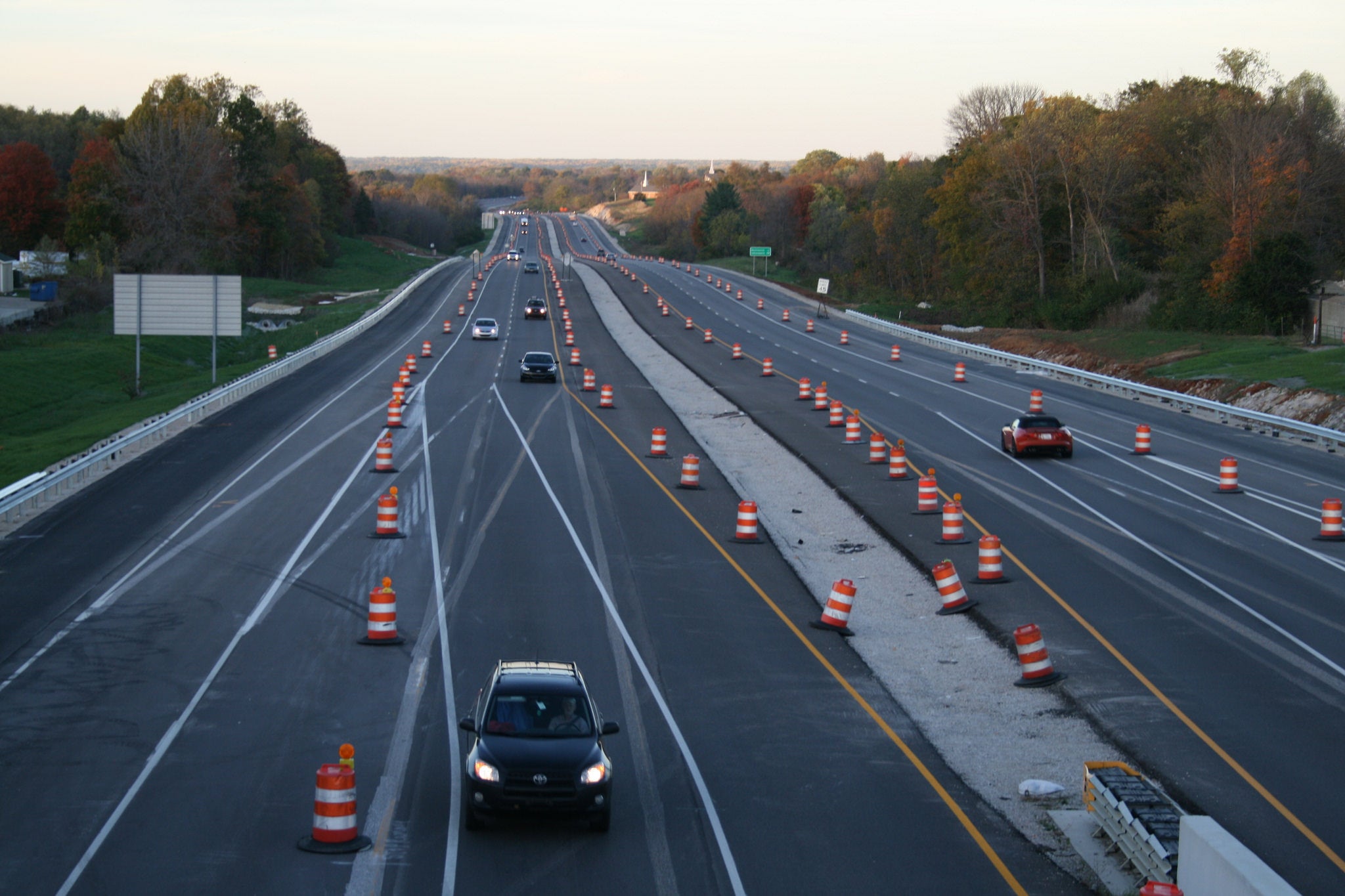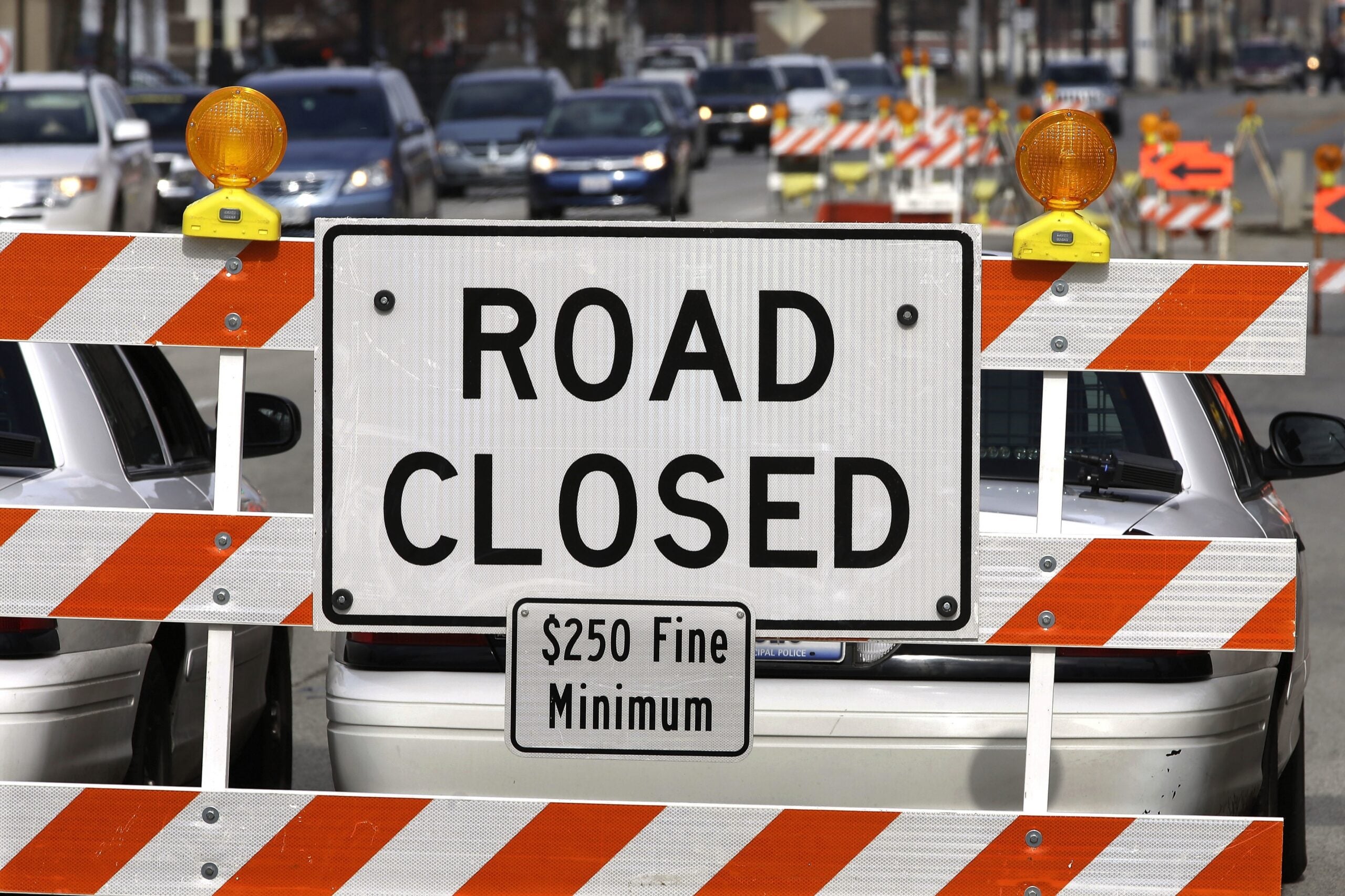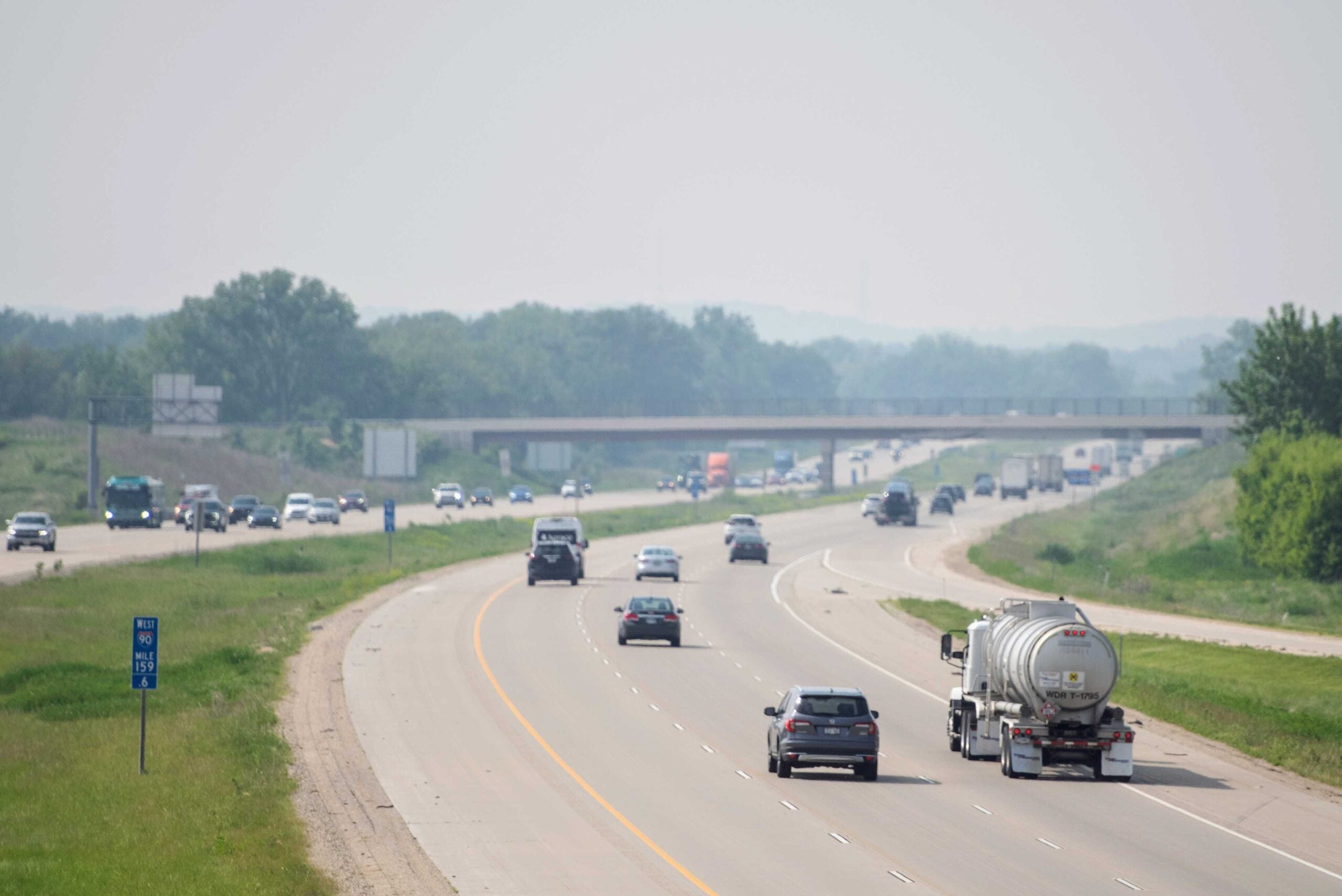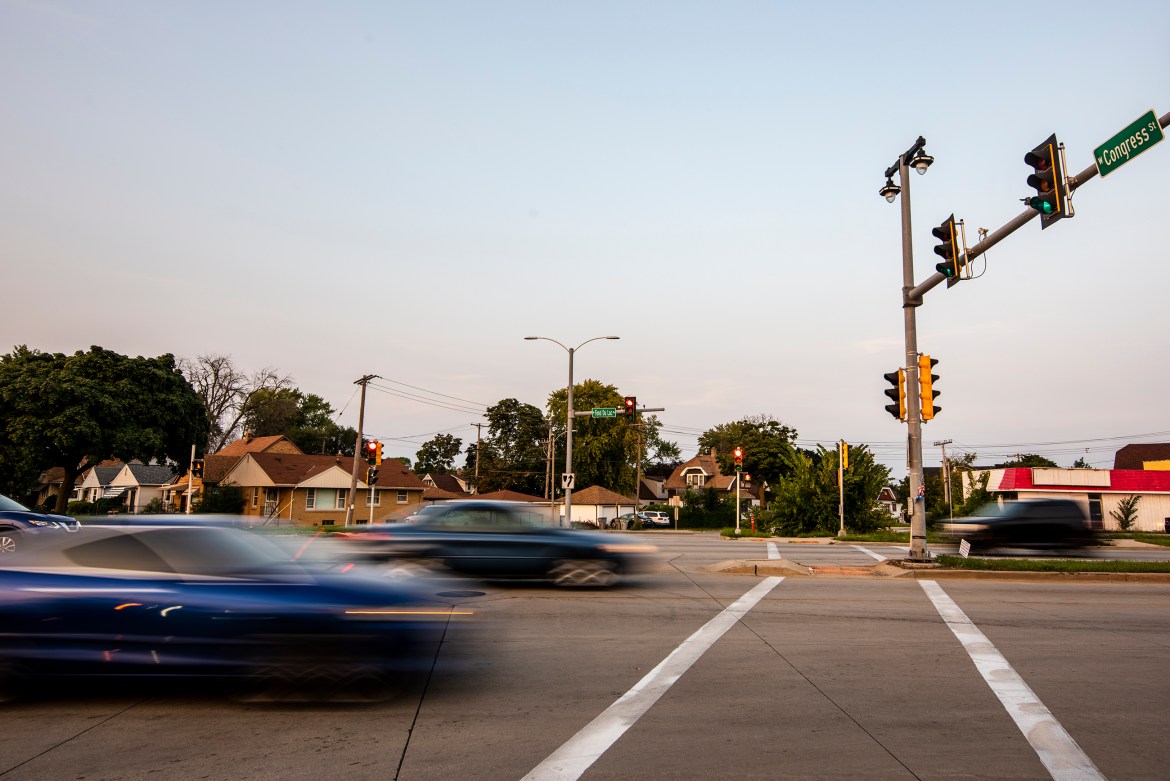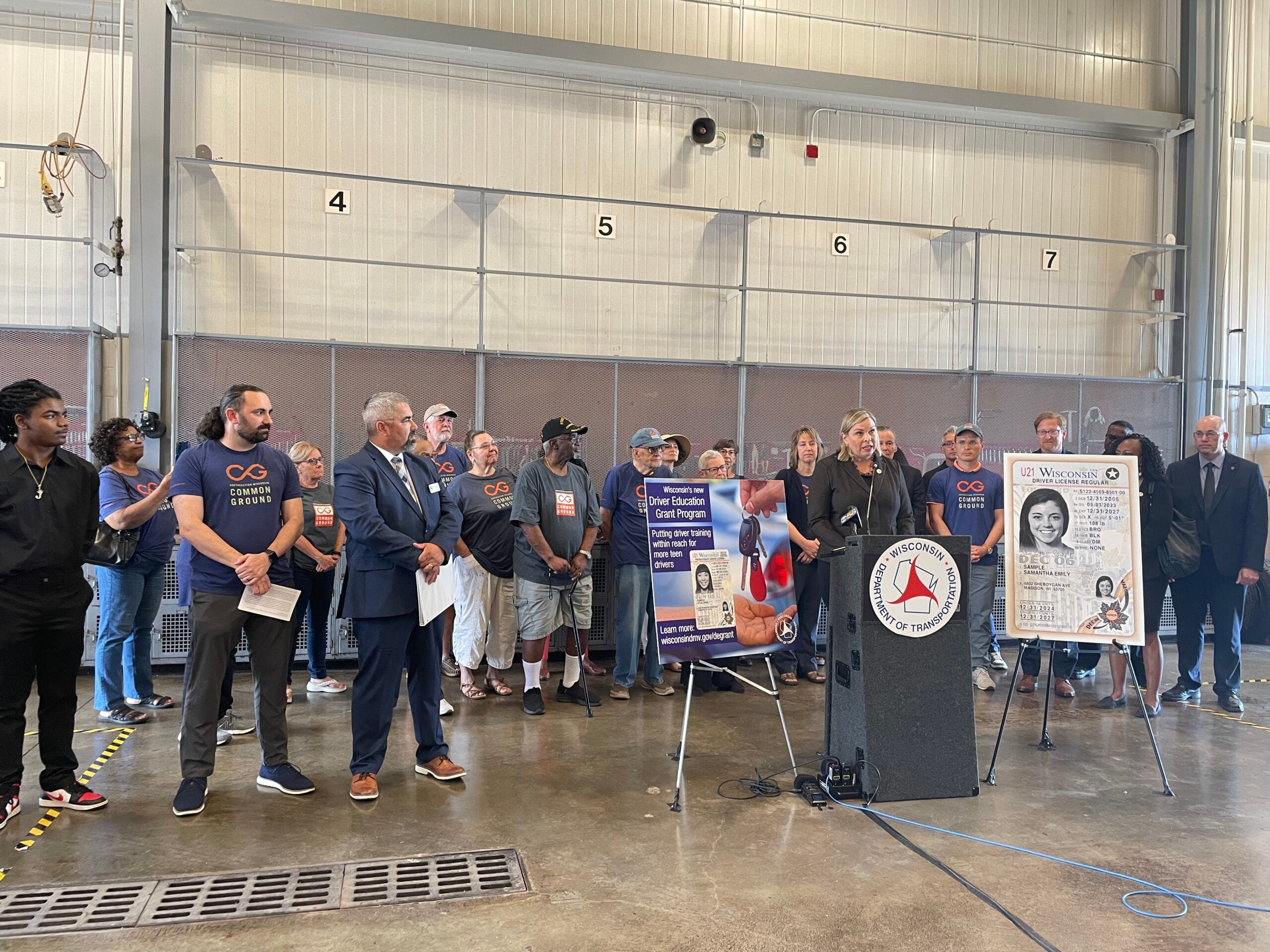State funding for road projects would grow by more than $1.5 billion in Wisconsin under a measure approved late Tuesday night by Republicans on the Legislature’s budget committee.
A small piece of that — a little more than $3 million — would be paid for by an increased fee on electric vehicles.
The GOP proposal would raise the electric vehicle fee from $100 to $175 in the upcoming budget. The fee was first created by Republicans in 2017 at a time when former Republican Gov. Scott Walker had threatened to veto other types of revenue increases.
News with a little more humanity
WPR’s “Wisconsin Today” newsletter keeps you connected to the state you love without feeling overwhelmed. No paywall. No agenda. No corporate filter.
The increased fee would account for a small portion of the state’s road funding according to the Legislature’s nonpartisan budget office. It would generate just $3.3 million over the next two years, a miniscule share of the overall funding increase.
But the idea provoked strong reactions from lawmakers ahead of Tuesday’s vote, with Republicans framing it as a matter of fairness and Democrats warning that it would punish people who make responsible decisions about what kind of vehicle to drive.
“I don’t know why we’re punishing people for doing something that actually benefits all of us,” said Sen. Kelda Roys, D-Madison. “If you want to drive a gas guzzler, fine. There’s no law preventing you from doing that. But why punish the people who are making the choice and usually paying a premium to do so to help us all live more sustainably?”
Wisconsin’s transportation system gets its state and federal funding from a variety of sources, with one of the biggest being the state’s motor fuel tax. The tax on gasoline and diesel accounts for nearly half of all transportation revenue in Wisconsin. It’s currently 30.9 cents per gallon.
Rep. Mark Born, R-Beaver Dam, who co-chairs the budget committee, noted that while most people pay the gas tax, electric vehicle drivers don’t.
“Why is it so unreasonable to say you should have to pay some of your fair share, too?” Born said.
Just 0.2 percent of all the vehicles on Wisconsin’s roads are fully electric, according to a summary of the state’s transportation finances by the Legislature’s nonpartisan budget office. Because of that, revenue from the fee has remained relatively low.
The motion passed by Republicans would come up with a much larger share of road funding elsewhere, including by making a one-time transfer of more than $555 million from the state’s general fund to its transportation fund. Republicans would also transfer about $94 million from the general fund to the transportation fund associated with the existing sales taxes on electric vehicles.
The general fund, which gets its revenue from sources like the income and sales tax, pays for a wide variety of expenses like schools, health care and prisons. In the past, lawmakers and governors have squabbled over whether to use it on roads, but both Evers and Republicans endorsed using some level of the state’s record $6.9 billion surplus on transportation this year.
But Democrats on the budget committee took issue with another move by Republicans that would fund mass transit via the general fund for the first time since the program was created in 1973. The danger, Democrats argued, is that in future years when state funding is low and the budget gets cut, transit could be on the chopping block, endangering a service that’s a lifeline for people who don’t own cars.
“I’m talking about thousands of riders a day, depending on those services, to get to both work and school,” said Sen. LaTonya Johnson, D-Milwaukee.
Republicans said the fears were unfounded, noting that along with their transfer, they proposed giving transit a 2 percent increase in the first year of the upcoming budget. The GOP motion would spend more than the governor proposed in other areas, including $100 million for a local roads improvement program and $150 million for “agricultural” roads.
“I am thrilled to vote for this,” said Rep. Tony Kurtz, D-Wonewoc. “Because this is a true investment in the state of Wisconsin.”
The proposal would still need approval from the full Legislature and from Evers, who ran on “fixing the damn roads” during each of his two successful campaigns for governor.
Wisconsin Public Radio, © Copyright 2026, Board of Regents of the University of Wisconsin System and Wisconsin Educational Communications Board.

